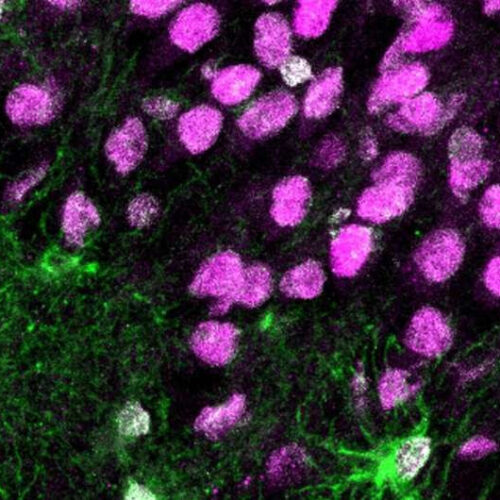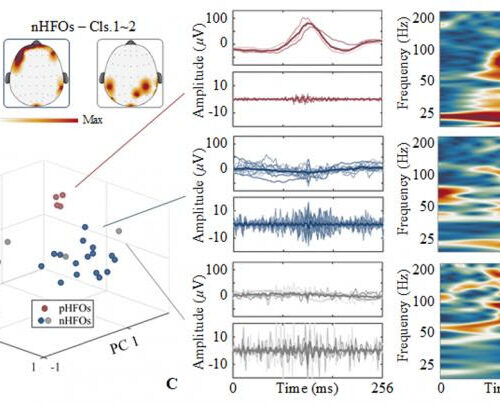by Keck School of Medicine of USC Newborn astroglia (green) in brain Sssue from human epilepsy paSents. Credit: Aswathy Ammothumkandy/Bonaguidi Lab/USC Stem Cell Over the years, everyone loses a few brain cells. A study led by scientists from USC Stem Cell and the USC Neurorestoration Center presents evidence that adults can replenish at least some...
Tag: <span>epileptic brain</span>
Fast brainwave oscillations identify and localize epileptic brain
COLLEGE OF ENGINEERING, CARNEGIE MELLON UNIVERSITY IMAGE: UNSUPERVISED IDENTIFICATION OF HIGH-FREQUENCY OSCILLATIONS CO-OCCURRING WITH EPILEPTIFORM SPIKES CREDIT: COLLEGE OF ENGINEERING, CARNEGIE MELLON UNIVERSITY Professor Bin He’s team at Carnegie Mellon University, in collaboration with the Mayo Clinic, has discovered that fast oscillations in scalp-recorded electroencephalography can pinpoint brain tissues responsible for epileptic seizures. The collaborative...
Brain network activity can improve in epilepsy patients after surgery
VANDERBILT UNIVERSITY MEDICAL CENTER Successful epilepsy surgery can improve brain connectivity similar to patterns seen in people without epilepsy, according to a new study published in the journal Neurosurgery. The Vanderbilt University Medical Center (VUMC) study of 15 people with temporal lobe epilepsy is the first to show improvements in brain networks after surgery compared to a group of healthy subjects. Brain networks involved...
Stimulating the epileptic brain breaks up neural networks to prevent seizures
by University of Pittsburgh Responsive neurostimulation (RNS) treats epilepsy by detecting seizures and intervening with a jolt of electric current. Over time, most patients find their seizures become fewer and further between. Now, for the first time, researchers at the University of Pittsburgh School of Medicine and UPMC have a better understanding of why this happens. As reported today...


